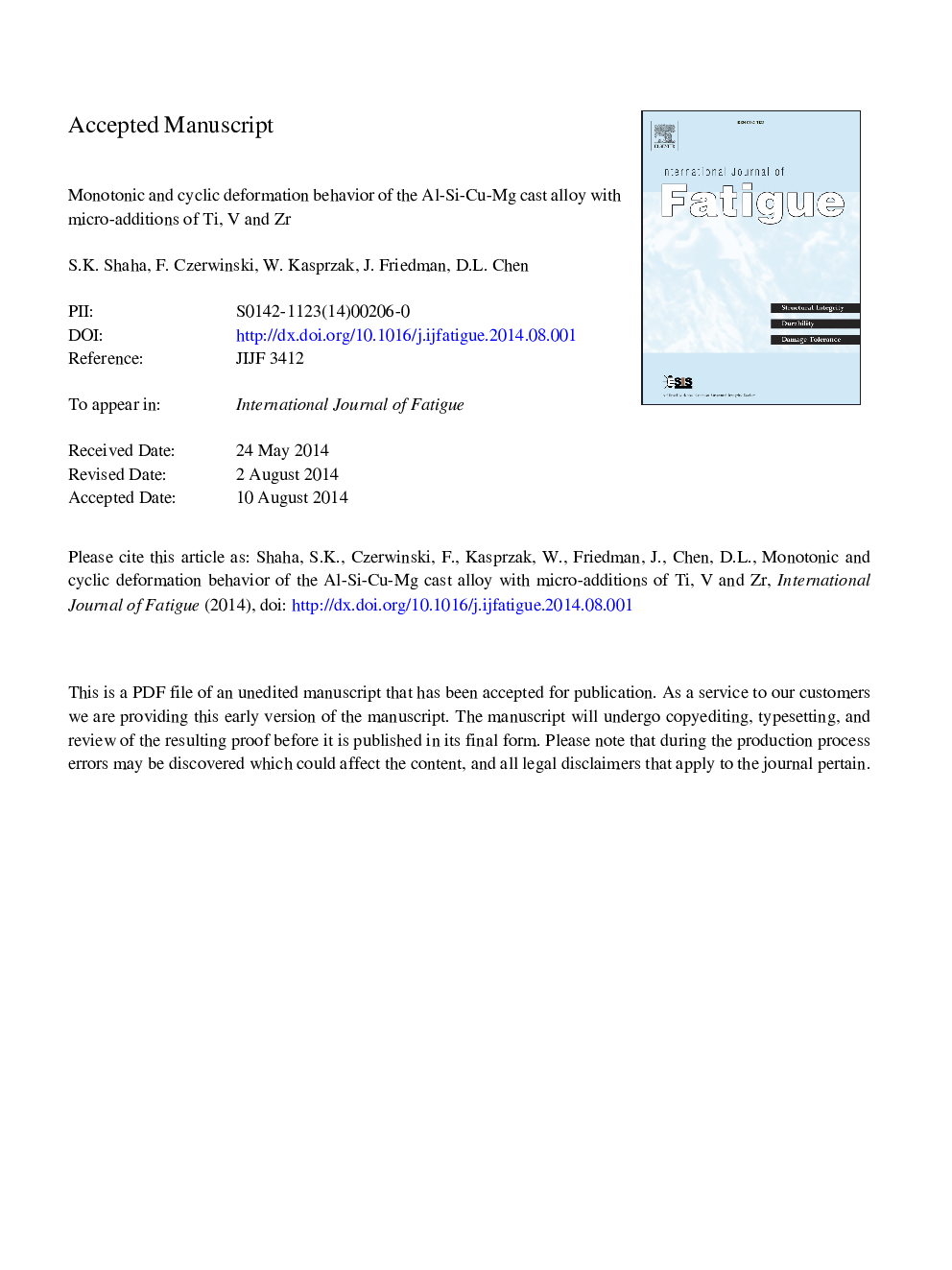| Article ID | Journal | Published Year | Pages | File Type |
|---|---|---|---|---|
| 7172128 | International Journal of Fatigue | 2015 | 39 Pages |
Abstract
Monotonic and cyclic tests were used to assess the influence of micro-additions of Ti, V and Zr on the deformation behavior of the Al-7Si-1Cu-0.5Mg (wt.%) alloy in as-cast and T6 heat treated conditions and to compare the results with alloys of similar chemistry described in the literature. The microstructure of the as-cast alloy consisted of α-Al, eutectic Si, and Cu, Mg and Fe based phases Al2.1Cu, Al8.5Si2.4Cu, Al7.2Si8.3Cu2Mg6.9 and Al14Si7.1FeMg3.3. In addition, the micro-size Zr-Ti-V-rich phases Al21.4Si4.1Ti3.5VZr3.9, Al6.7Si1.2TiZr1.8, Al2.8Si3.8V1.6Zr and Al5.1Si35.4Ti1.6Zr5.7Fe were present in the as-cast state. During solution treatment, Cu based phases were completely dissolved, while the eutectic silicon, Fe- and Zr-Ti-V-rich intermetallics experienced only partial dissolution. The monotonic test results showed that the T6 heat treated alloy achieved a tensile strength of 343 MPa and a compressive strength of 418 MPa. Also, the cyclic yield stress of the studied alloy in the T6 temper condition was higher than the monotonic value and reached 335 MPa. The fatigue life of the studied alloy was substantially longer than that of the reference alloy with the same base but lower additions of V, Zr and Ti, reported in the literature. The fractography revealed the tensile crack propagation through the eutectic Si and primary phases, exhibiting intergranular fracture along with some cleavage-like features of the plate-shape Zr-Ti-V-rich intermetallics with a presence of fatigue striations on the latter, indicating their ductile nature. It is believed that the intermetallic precipitates containing Zr, Ti and V improve the fatigue life of the studied alloy in the T6 condition.
Related Topics
Physical Sciences and Engineering
Engineering
Mechanical Engineering
Authors
S.K. Shaha, F. Czerwinski, W. Kasprzak, J. Friedman, D.L. Chen,
